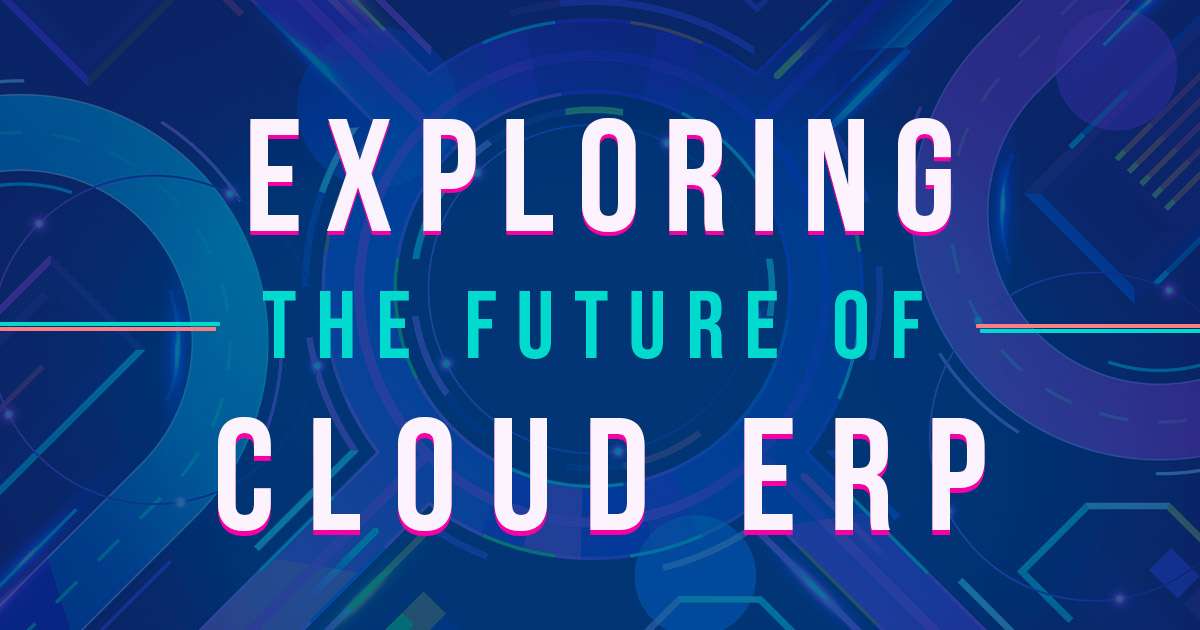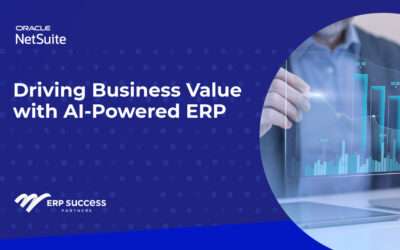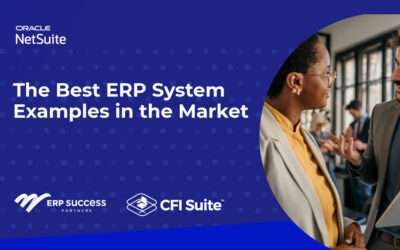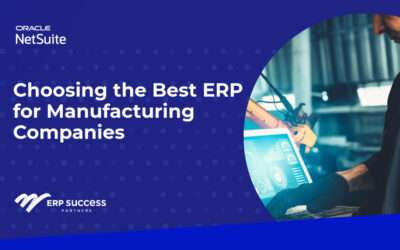The landscape of enterprise resource planning (ERP) is undergoing a profound transformation with the advent of cloud-based systems. These platforms have reshaped how businesses strategize, operate, and innovate. By consolidating core functions like finance, inventory management, HR, manufacturing, and CRM into a unified application managed by a third-party provider, cloud ERP solutions offer numerous advantages. These include cost savings, access to advanced features, mobility, simplified deployment, scalability, reduced reliance on internal IT resources, and adaptability to evolving business needs and growth.
Despite the surging popularity of cloud ERP systems, there’s still room for innovation and expansion. This article delves into how emerging technologies such as artificial intelligence (AI), machine learning (ML), and the Internet of Things (IoT) are poised to revolutionize cloud ERP systems, ushering in a new era of development and advancement.
Cloud ERP systems have evolved significantly over the past two decades. However, the future promises further enhancements driven by AI and ML, IoT integration, and the separation of front-end and back-end development. According to Panorama Consulting Group, 35% of cloud implementations still remain on-premises, indicating a sizable untapped market for cloud ERP systems. Additionally, IDC predicts that the public-cloud ERP market, encompassing finance, planning, procurement, and asset management applications, could double in revenue from $36 billion in 2021 to $73 billion by 2026.
This growth is expected to be propelled by various innovations addressing concerns that may have hindered some companies from embracing cloud ERP thus far. Some hesitations stem from perceptions of complexity and security challenges associated with cloud technology. However, emerging trends in ERP technology are poised to address these issues and reshape the landscape:
- AI and ML technologies enhance ERP systems by automating tasks and minimizing errors.
- Advanced analytics offer improved trend prediction and proactive issue identification.
- IoT capabilities enable data collection and analysis from IoT-enabled devices to predict customer behavior and potential equipment failures.
- Enhanced mobility features streamline collaboration and automation, enhancing efficiency.
- Headless ERP systems separate front-end interface development from back-end systems, allowing for greater customization and scalability.
- Novel security features leveraging AI and blockchain technologies swiftly detect anomalies and prevent unauthorized access.
What’s Noteworthy
- Businesses are rapidly transitioning to cloud computing, with experts predicting a 15% compound annual growth rate in the market through 2027.
- Cloud computing’s growth is fueled by scalability, flexibility, maintenance ease, mobility, cost savings, and enhanced security.
- Innovations such as AI, ML, and IoT are driving further growth for cloud ERP systems, making them more robust and user-friendly.
Cloud ERP in Detail
Cloud-based ERP systems streamline core business functions into a unified application accessible through internet-enabled devices, ensuring real-time data access from anywhere. These systems eliminate the need for on-premises hardware and maintenance, enabling small to medium-sized businesses to access powerful capabilities previously reserved for larger enterprises, all through a manageable subscription fee.
Cloud ERP systems automate workflows and offer audit and control capabilities, enhancing efficiency and security in processes such as financial management, order processing, and inventory management.
Cloud Migration Trends, Benefits & Future Predictions
Cloud ERP trends continue to surge, with Flexera reporting an increase in heavy cloud usage. The global cloud-based ERP market is projected to grow from $64.7 billion in 2022 to $130 billion by 2027, at a compound annual growth rate of 15%. The COVID-19 pandemic further accelerated cloud adoption, highlighting its value in facilitating remote work and data accessibility.
Cloud computing offers three primary deployment models: public, private, and hybrid. Each model offers distinct benefits and caters to different business needs, balancing factors such as cost, flexibility, customization, and security.
Cloud computing offers scalability, cost savings, mobility, simplified maintenance, and enhanced security. Companies can quickly scale resources, reduce upfront investments, access data remotely, and leverage provider-managed maintenance and upgrades.
AI, ML, advanced analytics, and flexible application development options will drive significant improvements in cloud ERP systems. These technologies will enhance automation, efficiency, and innovation, making cloud ERP systems more accessible and powerful for companies of all sizes.
The Future of Cloud ERP
NetSuite, a pioneer in cloud ERP since 1998, continues to lead the industry with innovations in AI, IoT, and advanced analytics. As AI, ML, and IoT technologies further integrate into ERP systems, businesses will unlock new opportunities for automation, efficiency, and innovation, driving market growth and affordability for all business sizes across all industries.
NetSuite ERP Success Stories - a strong portfolio of global customers
Companies like Officeworks, ChaTime, RIOS and RodeoFX have experienced transformative benefits from NetSuite cloud ERP implementations. These success stories highlight the immediate improvements in efficiency, accuracy, and scalability achieved through cloud ERP adoption. Learn more how we made a difference to these companies.






